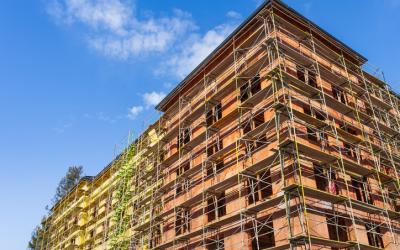Energy Benchmarking and Building Energy Labeling: Policy Issue
Overview
Energy benchmarking is the practice of measuring the performance of a single building over time, relative to other similar buildings or established energy standards, while labeling is the public display of a building's energy efficiency grade, score, or certification such as LEED. Policymakers across the country use benchmarking and labeling as a policy tool to lower the greenhouse gas emissions of buildings and increase a city's energy efficiency.

NAA Position
NAA opposes mandatory benchmarking and labeling policies. Such policies expose apartment owners and operators to a community’s overly ambitious and aggressive climate goals. Policymakers should instead develop voluntary programs that remove financial and behavioral barriers to adoption.
As an Owner or Operator, How Does this Affect My Business?
As a business practice, benchmarking encourages owners and operators to invest in energy efficiency upgrades and lower buildings’ energy usage. It can help to identify building inefficiencies, detect malfunctioning equipment through spikes in usage, determine cost effective retrofits, and promote the return on investment or value of capital projects or improvements to owners, investors or renters of a particular building. However, as a public policy tool, benchmarking mandates can be detrimental to the industry. Owners and operators may be expected to meet a local community’s aggressive energy reduction goals (or greenhouse gas protocols). Subsequent scoring or labeling of buildings could result, making an apartment building’s energy efficiency success, or apparent shortcomings, transparent to the public.
Contact Information
To learn more about this issue, please contact NAA's Government Affairs team.


